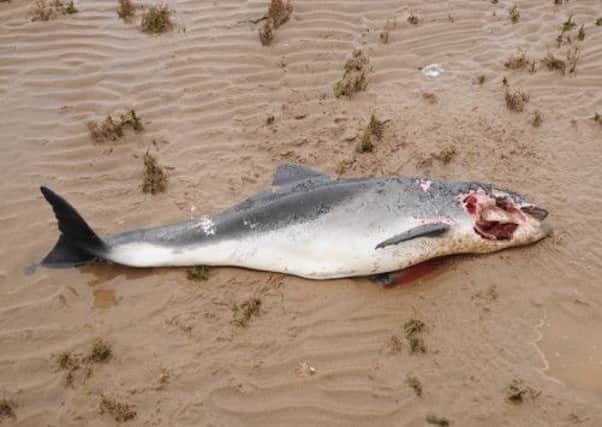Gale force easterly winds wreak terrible cost on Lincolnshire birds, porpoises and more


They have warned that the current extreme weather has been “cause for concern” and has caused “considerable disturbance” within the North Sea.
At least 10 harbour porpoises have washed up dead on Lincolnshire beaches in the past two months.
Advertisement
Hide AdAdvertisement
Hide AdAlmost 170 dead birds were also reported along a 20 kilometre stretch of the coast from Mablethorpe north to Tetney over a three-day period at the end of March.


And the Trust added that the recent ‘sand blows’ experienced on the Lincs coast were the worst for 35 years.
A spokesperson said: “The beaches of the North Sea coast have borne witness to the mass mortality of birds and marine animals.
“From Aberdeen southwards down the east coast billions of razor shells, hundreds of puffins, and dead crabs, lobster and mussels - equivalent to approximately 800,000 individuals - have been washed ashore.
Advertisement
Hide AdAdvertisement
Hide Ad“Although it is normal to see some natural change in wildlife patterns, the current records are unusual and a cause for concern.
“It is evident that the prolonged poor weather and strong winds have resulted in considerable disturbance within the North Sea and to its wildlife.
“Tide wrecks of marine animals have included dead birds, with in places billions of immature Ensis razorshells, whilst in other areas, there were 1,000s of sea urchins and in yet others, many starfish. Obviously, tidal currents have differentiated the wash-outs,” they added.
The dead birds found along the 20 kilometre stretch of Lincolnshire coastline between March 28 and 30 were as follows:-
Advertisement
Hide AdAdvertisement
Hide AdRazorbill 52, puffin 39, guillemot 31, little auk 1, common gull 11, herring gull 3, black headed gull 2, kittiwake 5, fulmar 1, lapwing 7, oystercatcher 2, woodcock 3, black tailed godwit 1, shelduck 2, gannet 1, common scoter 1, starling 2, blackbird 2.
The Trust added that Lapwings, blackbirds and starlings have to return to the continent during March, so with the constant winds from the east, there had “obviously been a significant mortality” at sea.
The Trust added that any live porpoises, dolphins or whales stranded on beaches should be reported to British Divers Marine Life Rescue at www.bdmlr.org.uk and 01825 765546.
“No attempt should be made to touch or move these animals,” they added.